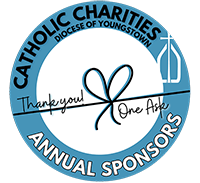Office of Peace and Justice
Office of Peace and Justice
Please note: This page is currently under construction. Additional information and resources will be populated as it becomes available.

Contact Information
R.J. Mangan, Director of Peace and Justice
144 West Wood St.
Youngstown, OH 44503
Phone
(330) 744-8451 ext. 245
Email
rmangan@youngstowndiocese.org
Office Hours: 8:00am – 4:00pm, M – F
Services offered by the Office of Peace and Justice
- Catholic Social Teaching
- Current Issues
- Educational Opportunities
- Legislation
- Resource Links
- Social Advocacy
- Social Justice
- Volunteer Opportunities
Programs overseen by the Office of Peace and Justice
CATHOLIC CAMPAIGN FOR HUMAN DEVELOPMENT (CCHD)
Mission & Identity
The Catholic Campaign for Human Development is the domestic anti-poverty program of the U.S. Catholic Bishops, working to carry out the mission of Jesus Christ “… to bring good news to the poor … release to captives … sight to the blind, and let the oppressed go free.” (Luke 4:18)
The belief that those who are directly affected by unjust systems and structures have the best insight into knowing how to change them is central to CCHD. CCHD works to break the cycle of poverty by helping low-income people participate in decisions that affect their lives, families and communities. CCHD offers a hand up, not a hand out.
CCHD has a complementary mission of educating on poverty and its causes. This strategy of education for justice and helping people who are poor speak and act for themselves reflects the mandate of the Scriptures and the principles of Catholic social teaching.
CCHD provides the Catholic faithful with concrete opportunities to live out the love of God and neighbor in ways that express our baptismal call and continuing Eucharistic transformation. CCHD is made possible by the generous support of Catholics in the United States, especially through an annual parish collection.
CCHD is an essential part of the Church in the United States’ social mission, and a unique part of the Catholic community’s broad commitment to assist low-income people, families and communities.
Click here to learn more about CCHD.
CCHD-Funded Groups
CCHD has made over 9,000 grants to support people living in poverty break the cycle of poverty, and over 200 organizations are supported annually. CCHD’s rigorous review process includes the recommendation and approval of the local bishop as well as a grant agreement.
Hundreds of smaller projects are funded through the 25 percent share of the CCHD collection retained by dioceses. These grants have significantly changed the lives of the poor in the United States.
Within the Diocese of Youngstown, our local CCHD-funded group is A.C.T.I.O.N. – Alliance for Congregational Transformation Influencing Our Neighborhoods
CCHD Diocesan Director
The CCHD Diocesan Director is responsible for the general direction, supervision, planning and coordination of all aspects of the Catholic Campaign for Human Development (CCHD) at the diocesan level.
Mr. R.J. Mangan is the CCHD Director in the Diocese of Youngstown.
CATHOLIC RELIEF SERVICES (CRS)
Mission statement:
Catholic Relief Services carries out the commitment of the Bishops of the United States to assist the poor and vulnerable overseas. We are motivated by the Gospel of Jesus Christ to cherish, preserve and uphold the sacredness and dignity of all human life, foster charity and justice, and embody Catholic social and moral teaching as we act to:
PROMOTE HUMAN DEVELOPMENT by responding to major emergencies, fighting disease and poverty, and nurturing peaceful and just societies; and,
SERVE CATHOLICS IN THE UNITED STATES as they live their faith in solidarity with their brothers and sisters around the world.
As part of the universal mission of the Catholic Church, we work with local, national and international Catholic institutions and structures, as well as other organizations, to assist people on the basis of need, not creed, race or nationality.
Click here to learn more about CRS.
CRS Fellowship and Chapters
Catholic Relief Services Chapters and Clubs are communities of people transforming the world through CRS campaigns to eradicate global poverty and injustice.
Click here to learn more about CRS Chapters and Clubs.
Interested in starting a CRS Chapter or Club? Contact R.J. Mangan.
CRS Rice Bowl
CRS Rice Bowl is the Lenten program of Catholic Relief Services, the official relief and development agency of the United States Conference of Catholic Bishops. Through CRS Rice Bowl, faith communities in dioceses throughout the United States put their faith into action through prayer, fasting and almsgiving. Lenten alms donated through CRS Rice Bowl support the work of CRS in more than 100 different countries each year. Twenty-five percent of donations to CRS Rice Bowl stay in the local diocese, supporting hunger and poverty alleviation efforts. Since its inception in 1975, CRS Rice Bowl has raised nearly $300 million.
Click here to learn more about CRS Rice Bowl.
CATHOLIC SOCIAL TEACHING
What is Catholic Social Teaching?:
“Catholic social teaching is a central and essential element of our faith. Its roots are in the Hebrew prophets who announced God’s special love for the poor and called God’s people to a covenant of love and justice.” -USCCB
For resources and more, visit usccb.org.
EDUCATIONAL OPPORTUNITIES
- Guest Speaking. The Director of Peace and Justice is available to come in to schools and other groups to speak on a variety of topics.
Please contact R.J. Mangan to inquire about a speaking engagement.
LEGISLATION
Death Penalty Legislation:
House Bill 183 and Senate Bill 103, introduced in February 2021, are identical bills that would repeal Ohio’s death penalty. Learn more at #NoDeathPenaltyOhio.
Death Penalty Legislation:
Senate Bill 101 – to abolish the death penalty in Ohio
Pro Life – November 2023:
Vote NO – Ohio Constitution Amendment
Learn More: http://www.ohiocathconf.org/protect
PRISON MINISTRY
- Our Mandate
• To share a Catholic presence, and visit every Catholic incarcerated in institutions within our diocese.
• To celebrate the sacraments.
• To provide a welcoming and supportive setting for those returning from incarceration
Our Mission
To share the love and consolation of Jesus Christ to those incarcerated by bringing a living message of God’s love and forgiveness, and through our presence, prayers and communications offer a sense of trust and hope.
Our Scope
The Diocese of Youngstown covers six counties in Northeast Ohio: Mahoning, Trumbull, Columbiana, Stark, Portage, and Ashtabula. Institutional facilities include county jails, juvenile detention facilities. Prisons include Ohio State Penitentiary (OSP), Trumbull Correctional Institution (TCI) and Camp (TCC), Lake Erie Correctional Institution (LAECI) Northeast Ohio Correctional Center (NEOCC), and Federal facilities FCI Elkton and FCC Elkton.
Inside Facility Programs:
Our programs vary depending on the facility. Typical programs include RCIA/Catechism classes, Catholic studies, Scripture readings and discussion, devotional prayer and rosary. In addition, we offer weekly communion services and Masses and Reconciliation, if possible. Baptism, Confirmation and Eucharist are available at several institutions. When possible we offer our programs and resources in both English and Spanish languages.
Support for returning citizens and their families: Kolbe Gathering
Saint Maximilian Kolbe Society (SMKS) provides spiritual support to returning citizens through a network of parish-based volunteers from throughout the diocese. We strive to be a loving, welcoming, inclusive community of believers, ministering to the formerly incarcerated and their families by bringing the message of God’s unconditional love and a sense of hope to those we serve. We will share the Gospel of Jesus Christ, celebration of liturgies, reception of sacraments and, study of our Catholic faith, and Holy Scripture. This ministry is grounded in the Gospel and Catholic social teachings. The programs will include elements of Worship, Faith Sharing and Open Sharing.
If requested, we will share available contact information for reentry organizations that address secular needs (e.g. housing, jobs, and clothing).
General Reentry assistance is managed through Catholic Charities Regional Agency
For further information contact R.J. Mangan at (330) 744-8451, ext. 245 or email rmangan@youngstowndiocese.org.
RESOURCE LINKS AND VIDEOS
Civilize It
As a Church and a nation, we are polarized and divided. Pope Francis challenges us to respond by building a “better kind of politics, one truly at the service of the common good” (Fratelli Tutti, no. 154). We are called to overcome division, promote encounters with our neighbors, and seek the truth. Join Catholics across the country in living out A Better Kind of Politics by pledging charity, clarity, and creativity to promote the common good.
The Department of Justice, Peace & Human Development (JPHD) promotes awareness of Catholic social teaching and opportunities to live the Baptismal call to love God and neighbor.
Efforts include the anti-poverty mission of the Catholic Campaign for Human Development, as well as advocacy in support of poor and vulnerable persons and communities, in the U.S. and abroad.
JPHD’s work is guided by the Committees on International Justice and Peace, Domestic Justice and Human Development and the Subcommittee on the Catholic Campaign for Human Development.
VOLUNTEER OPPORTUNITIES
HOPE Letters Ministry
The program’s intent is to provide hope and guidance through regular mentoring correspondence to incarcerated men and women in Ohio’s state prisons. HOPE Letters builds faith-based relationships that ease the transition from prison to community and provides a supportive HOPE Letters reentry community for returning neighbors. The goal is to increase the likelihood that “inside” HOPE Letters mentees experience wholeness and meaning while incarcerated, and when released, will permanently reintegrate into the community as supported, restored, productive citizens.
Contact R.J. Mangan at (330) 744-8451, ext. 245 or email rmangan@youngstowndiocese.org if you are interested in volunteering with this program.

